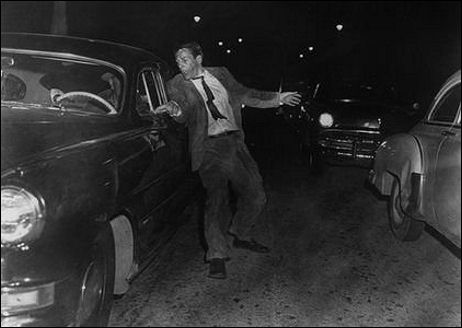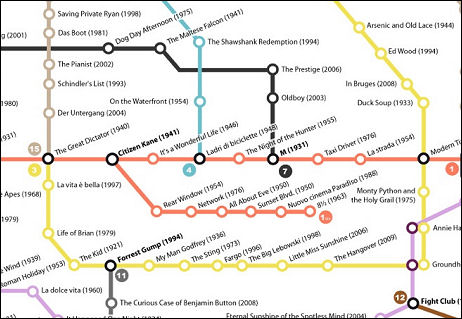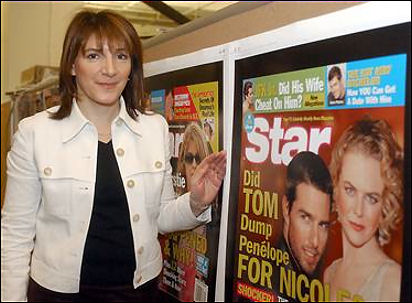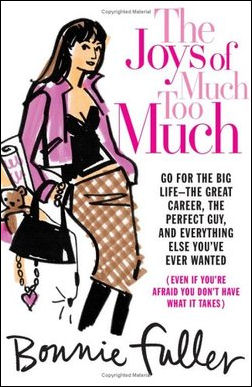The most uncompromised aspect of Nikki Finke‘s 7.16 post about Bonnie Fuller‘s hiring by Mail.com Media Corporation (MMC) to run HollywoodLife.com is — of course, as ever — the reader comments. I was particularly struck by the following comment posted at 10:53 pm last night by “Stacy,” to wit:
“Egads…Bonnie Fuller? Queen of Tabloid Lies? That woman has zero conscience when it comes to lying about celebrities, making up stories based on the pictures, terrorizing her staff and making a mockery of the media’s first amendment rights.
“Fuller is a cat with nine lives. After American Media (i.e., Star, The National Enquirer, Globe) fired her I really hoped she’d fade into the woodwork and no one would hire her to taint their organization and turn young and impressionable “journalists” into lying scumbags like she did at Us Weekly and the American Media mags.
“But when all anyone cares about is the bottom line then Bonnie Fuller is the person you want. HollywoodLife.com can kiss morals, truth, verified and named sources and just plain old good taste on the ass and wave bye-bye.
“I can see it now. On Fuller’s first day HollywoodLife.com’s homepage will read, ‘BRAD BEGS JEN FOR SECOND CHANCE’ or ‘ANGIE DRIVES BRAD AWAY FOR GOOD!’ or ‘BRAD TELLS JEN, ‘I STILL LOVE YOU”. Just when I thought this fuckery was going to end, along comes Bonnie Fuller out of the woodwork. Bleh. That’s the unfortunate thing with cockroaches — they’ll survive a nuclear holocaust and the rest of us will be deader than doornails. Roaches outlived the dinosaurs and Bonnie Fuller will outlive her fellow cockroaches.”
Stacy needed a better kicker than the dinosaurs/cockroaches analogy. And the line about “this fuckery” coming to an end is a little simple-minded given that (a) the likelihood that mindlessly made-up tabloid stories about celebrity relationships would fade away is less than zero given that (b) the young under-educated females who lap this stuff up every week have certain emotional appetites, diseased philosophies and self-esteem issues that exist independent of Bonnie Fuller’s ravings and imaginings. But the point is made.
There are many ugly and deplorable elements in U.S. society. The people who worship the ravings of Glenn Beck, for example. But sometimes, particularly after buying groceries at a supermarket, I find myself muttering that there’s nothing worse — nothing lower, shallower, stupider, and more spiritually rancid or pathetic — than the longings and imaginings and material aspirations of Fuller’s female readership.
Here is David Carr‘s dry-as-a-bone reporting about the MMC/Fuller announcement.








